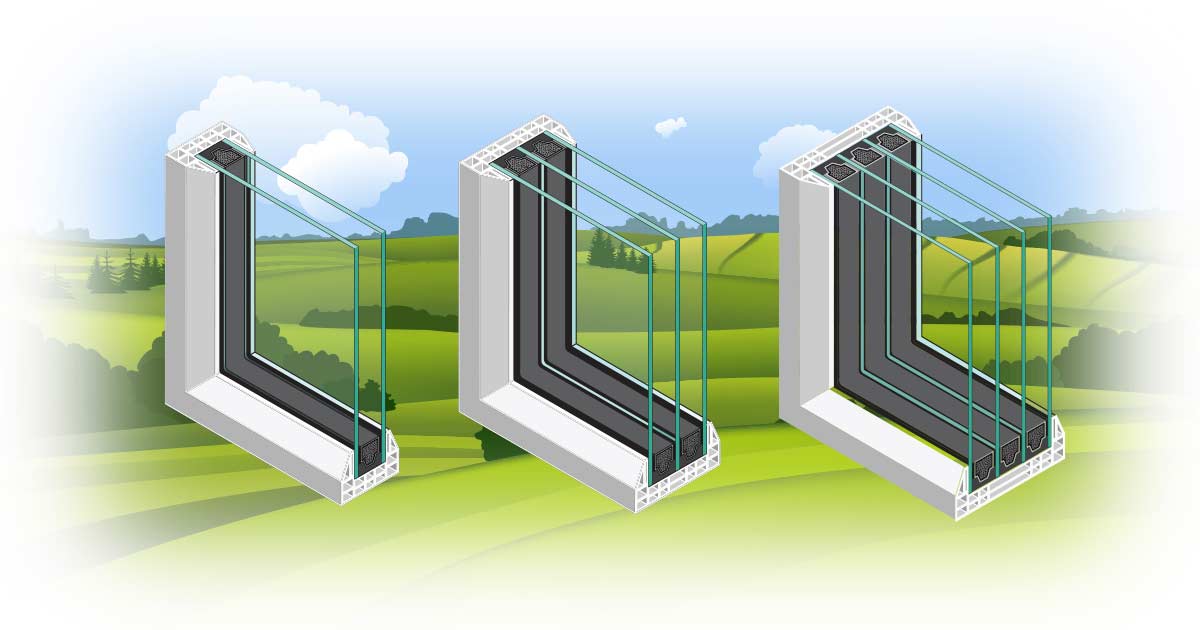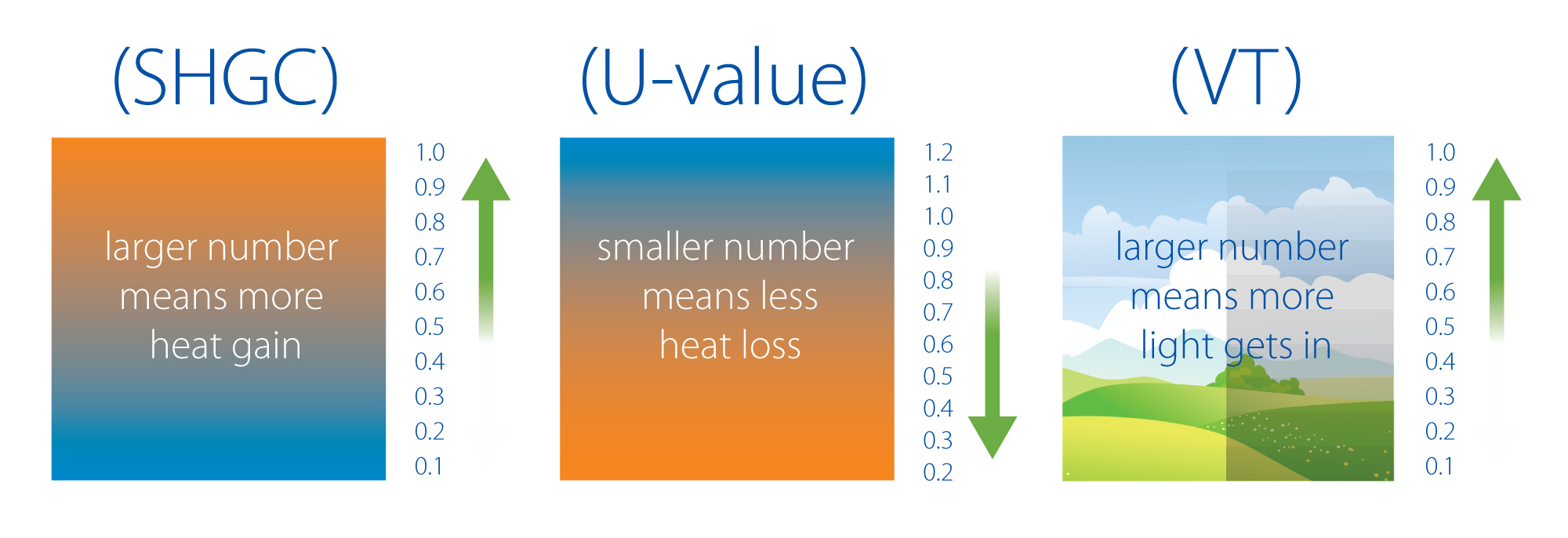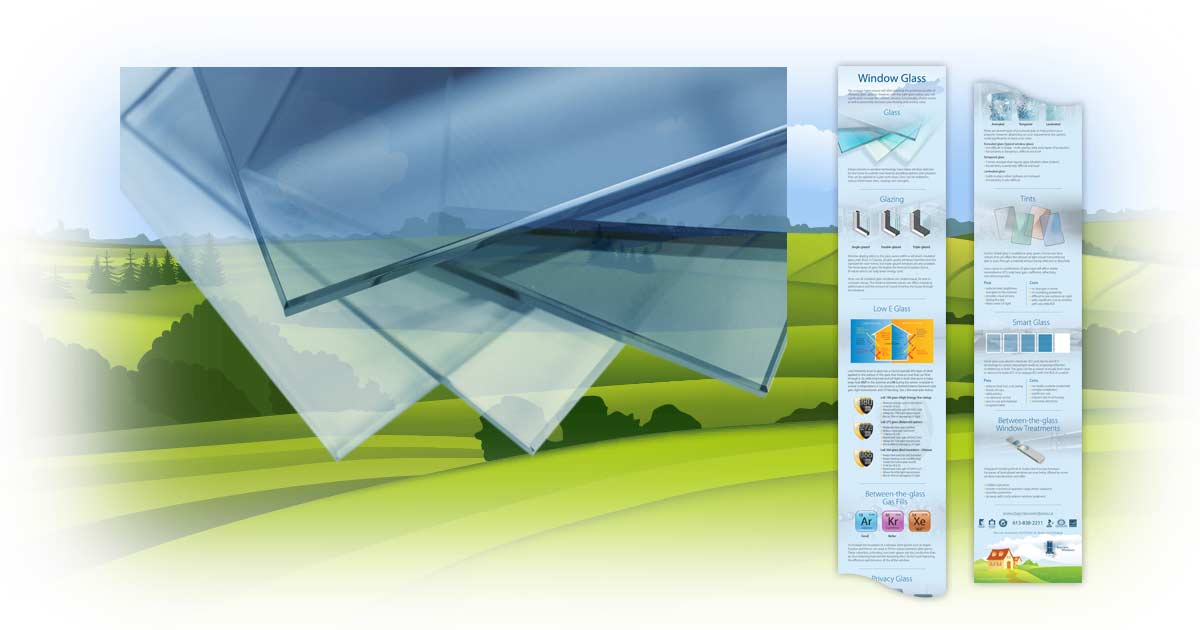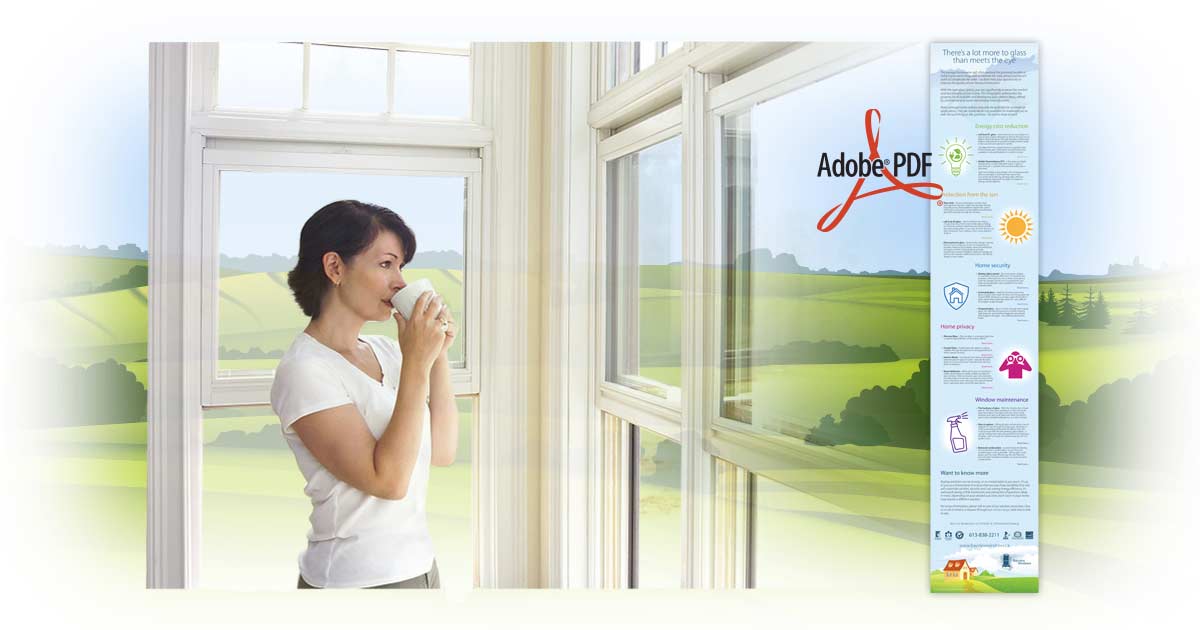Insights > Category > Posted: 2023-Nov-16, Updated: 2025-Mar-21
Glass Options
Single-Glaze vs Multi-Glaze

Making an informed decision requires thorough research. This blog post provides an unbiased overview of factors affecting window prices and performance, equipping you with the knowledge to choose the best options for your home. Why settle for subpar windows when you can invest in the best?
Glass Efficiency
Before making a decision, consider these key glass attributes that impact a window’s efficiency:
- The number of glass panes
- The thickness of the glass
- Coatings on the glass
- Space between the panes
- The spacers separating the panes
- The gas between the panes
- The frame holding the glass in place
These attributes are rarely available to the average consumer, making Energy Ratings crucial. These standardized, unbiased measurements, tested by a neutral authority, help you make honest comparisons between windows.
Measuring Energy-Efficiency
For reliable energy-efficiency measurements, refer to the NRC Canadian Government-sponsored Energy Star website, where you can search for windows using various criteria.
Energy Star Specs - Double/Triple Glazing

- U-factor (UF): Measures heat loss through frames, spacers, and glass
- Solar Heat Gain Coefficient (SHGC): Indicates heat transmitted and absorbed, then released inward
- Visible Transmittance (VT): Amount of visible light passing through a glazing material
Energy Efficiency vs. Home Comfort
In Ottawa, energy efficiency focuses on reducing winter heating costs, which far exceed cooling costs. However, energy-efficient windows can sometimes compromise home comfort by causing excessive heat in summer, excessive brightness in south-facing windows, or furniture damage from UV rays. This is why window manufacturers offer varying levels of glass options, making apples-to-apples comparisons challenging.
Local Climate Considerations
Specific climate conditions, such as humidity levels and average temperatures, can influence your choice. In colder climates, triple glazing might offer significant benefits in terms of insulation and comfort.
Comparing Double-Glazed and Triple-Glazed Windows
Deciding between double and triple glazing? Let’s break it down. Assuming both options use the same type of glass, gas, and spacers, the main difference is an extra pane of glass in triple glazing, offering better insulation and soundproofing but at a higher cost. Triple glazing is thicker and heavier, potentially complicating installation and limiting design options. Your decision will depend on specific needs, budget, and preferences.
Home Comfort
- Triple-glazed windows maintain more consistent indoor temperatures.
- They typically allow for higher humidity levels and lower condensation than double-glazed windows.
Performance and Weight
Double-Glazed Windows:
- Weigh less than triple-glazed windows.
- Easier to install.
Triple-Glazed Windows:
- Heavier, requiring stronger support but better engineered for durability.
- Look for products with extended warranties if concerned about weight and durability.
Free Heat and Light
- Double-glazed windows allow more light and solar heat.
- Triple-glazed windows filter out UV rays more effectively.
Thermal Insulation
The number of glass panes in a window influences thermal insulation. Double or triple glazing creates insulating air pockets, reducing heat loss. Low-emissivity (Low-E) coatings reflect radiant heat back into the room, enhancing insulation and energy efficiency, leading to lower energy bills and a more comfortable home.
Cost
The more glazing layers a window has, the more expensive it tends to be. While single-pane windows are the least expensive, double and triple-pane windows, especially with Low-E coatings or gas fills, offer better energy efficiency, resulting in long-term cost savings.
Condensation
Triple-glazed windows are generally the best option for preventing condensation due to their lower U-value and superior insulation properties. Gas fills like argon or krypton further reduce condensation.
Sound
Triple-pane glazing offers better sound insulation than single-pane glazing by absorbing soundwaves and reducing noise transmission. Specialized acoustic glazing options are also available for greater sound insulation.
Maintenance and Longevity
Consider the maintenance and longevity of your windows. Triple-glazed windows, while offering superior insulation, might require more robust framing and potentially more maintenance. However, their longevity and performance can justify the initial investment.
Environmental Impact
Choosing energy-efficient windows not only reduces your energy bills but also lowers your carbon footprint. By improving insulation, you reduce the need for heating and cooling, contributing to environmental conservation.
Financial Incentives
Look into financial incentives or rebates for installing energy-efficient windows. Government programs and utility companies often offer incentives to encourage energy-saving home improvements.
Installation Tips
Prepare for the installation process by understanding what to expect. Ask potential contractors about their experience with triple-glazed windows, ensure they follow best practices, and check for proper insulation and sealing during installation.
Conclusion
Choosing the right windows for your home involves balancing factors like energy efficiency, cost, comfort, and installation requirements. While double-glazed windows offer good insulation and are easier to install, triple-glazed windows provide superior thermal and sound insulation, though at a higher cost and weight. Understanding the specific needs of your home, your budget, and the local climate will guide you in making the best decision. Remember, investing in high-quality, energy-efficient windows can lead to long-term savings, increased home comfort, and a reduced environmental impact. Make an informed choice to ensure you get the best value and performance for your investment.
Related stories
Need more information?
Looking to boost your home's energy efficiency? Discover the advantages and drawbacks of double vs. triple glazing and how they can affect your energy bills. Contact us to speak with one of our experts and find the best solution for your home.
Request information | 613-838-2211 | Request a quote




